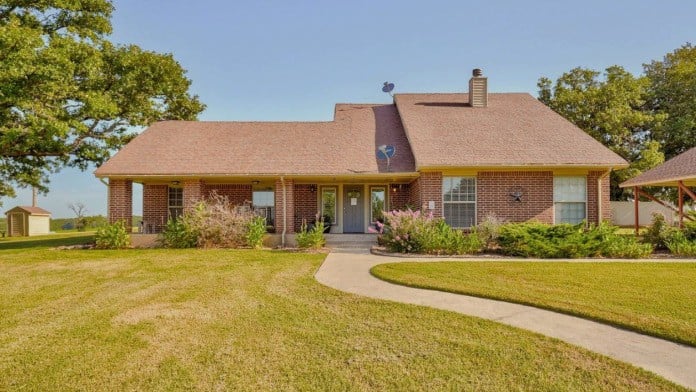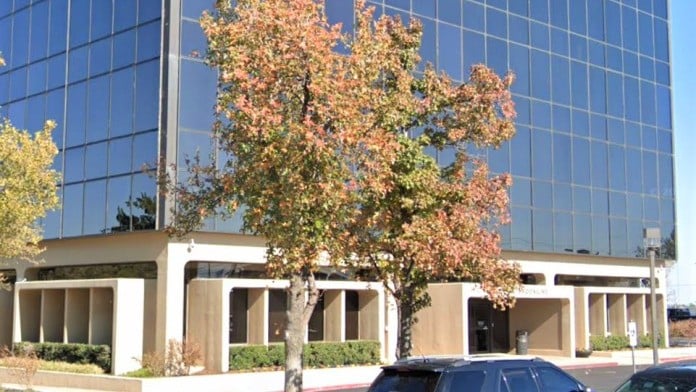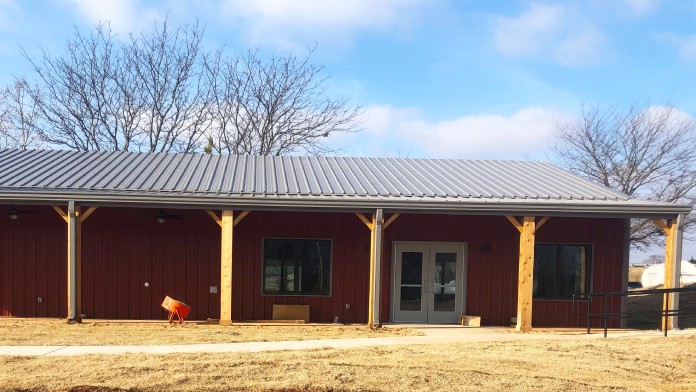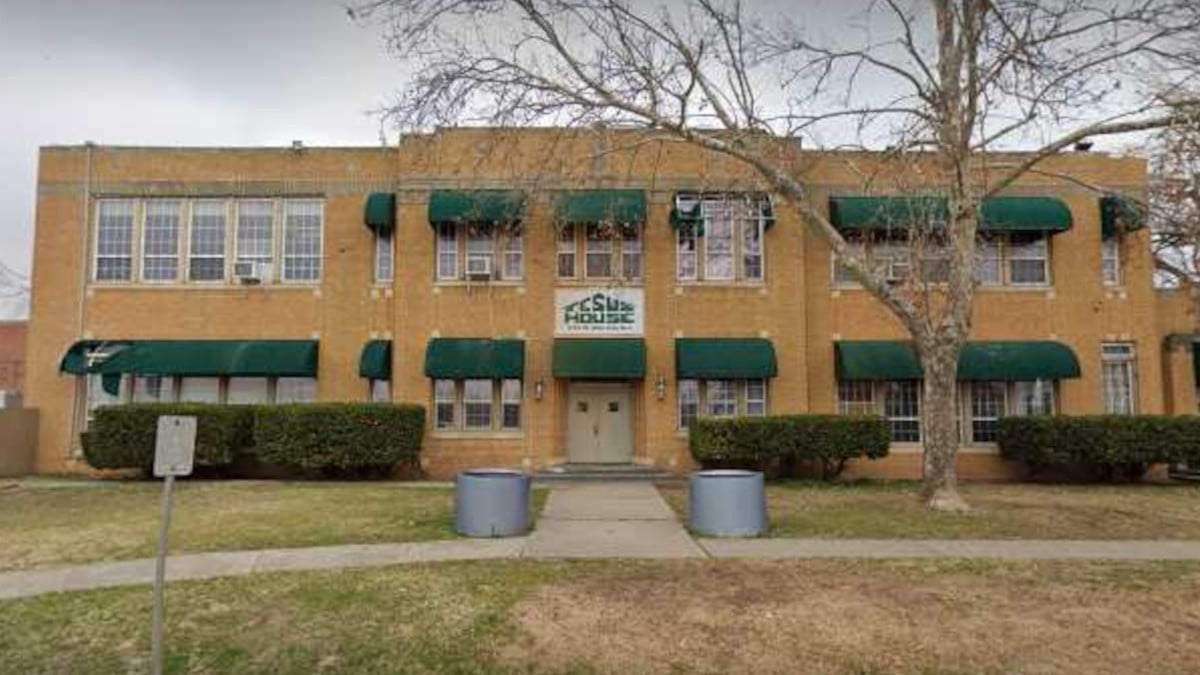About Central Oklahoma Community Mental Health Center – Family Services
Central Oklahoma Community Mental Health Center – Family Services
Central Oklahoma Community Mental Health Center is an organization that offers substance use disorder (SUD) and mental health treatment services to children, teens, adults, and families. The organization has several locations around Norman, Oklahoma, including the facility on Main Street, which offers children and family services.
Recovery Model of Treatment in Norman, Oklahoma
Norman, Oklahoma, is home to the University of Oklahoma. The community has a vibrant arts and cultural scene, various museums, and is a hub for festivals and fairs. The treatment center is only a few miles from the Sam Noble Museum of Natural History and the Fred Jones, Jr., Museum of Art.
The treatment team bases all its services on the recovery model. The model is trauma informed, supports clients with co occurring mental health and substance use disorders, and provides culturally competent treatment. The programs are CARF accredited.
Mental Health and Addiction Treatment for Children and Families in Norman
Children of all ages and their families can get outpatient behavioral health services at the center. The clinicians provide children with the least restrictive environment possible for treatment. They work to empower families and provide services based on the needs, abilities, strengths, and preferences of the child and family.
Treatment includes group, family, and individual therapy. They use different techniques to ensure the treatment improves the lives of children who have complex behavioral and emotional needs. The staff treats children with a variety of issues such as poor attachment, low self esteem, depression, anxiety, and issues associated with physical and sexual abuse.
Additional Treatment Services
In addition to the Main Street location, the organization has other treatment locations throughout Norman. These include the medication clinic, adult outpatient services, and psychiatric rehabilitation.
They also have an enhanced recovery community nearby. Residents of this community at Hope Hall receive skills training and support as they transition back to the community after institutionalized living.
Latest Reviews
We’re sorry to hear that you had a negative experience with us. We take your feedback very seriously.
We would like to invite you to get in touch with our Consumer Advocacy Division at advocacydivision@odmhsas.org so we can discuss this further and ensure that your expectations are met. We look forward to hearing from you.
We’re sorry to hear that you had a negative experience with us. We take your feedback very seriously.
We would like to invite you to get in touch with our Consumer Advocacy Division at advocacydivision@odmhsas.org so we can discuss this further and ensure that your expectations are met. We look forward to hearing from you.
Rehab Score
Gallery
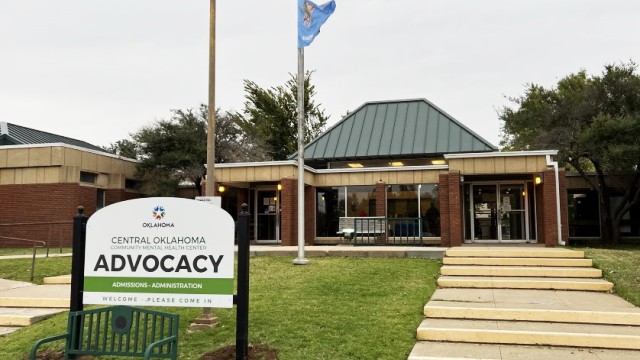
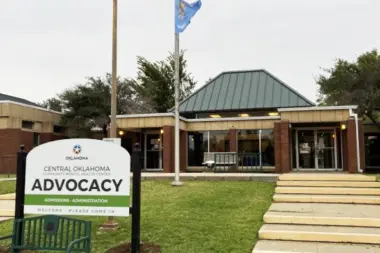
Other Forms of Payment
Medicaid is a state based program that helps lower-income individuals and families pay for healthcare. Medicaid covers addiction treatment so those enrolled can use their coverage to pay for rehab. When a program accepts Medicaid the client often pays very little or nothing out of their own pocket.
Private insurance refers to any kind of healthcare coverage that isn't from the state or federal government. This includes individual and family plans offered by an employer or purchased from the Insurance Marketplace. Every plan will have different requirements and out of pocket costs so be sure to get the full details before you start treatment.
Self-pay involves paying for treatment out of your own pocket. You can use savings or credit, get a personal loan, or receive help from family and friends to fund your treatment. If you don't have insurance or your insurance plan doesn't cover a specific program, self-pay can help ensure you still get the care you need.
Financial aid can take many forms. Centers may have grants or scholarships available to clients who meet eligibility requirements. Programs that receive SAMHSA grants may have financial aid available for those who need treatment as well. Grants and scholarships can help you pai for treatment without having to repay.
Medicare is a federal program that provides health insurance for those 65 and older. It also serves people under 65 with chronic and disabling health challenges. To use Medicare for addiction treatment you need to find a program that accepts Medicare and is in network with your plan. Out of pocket costs and preauthorization requirements vary, so always check with your provider.
Military members, veterans, and eligible dependents have access to specific insurance programs that help them get the care they need. TRICARE and VA insurance can help you access low cost or no cost addiction and mental health treatment. Programs that accept military insurance often have targeted treatment focused on the unique challenges military members, veterans, and their families face.
Addiction Treatments
Levels of Care
Outpatient Programs (OP) are for those seeking mental rehab or drug rehab, but who also stay at home every night. The main difference between outpatient treatment (OP) and intensive outpatient treatment (IOP) lies in the amount of hours the patient spends at the facility. Most of the time an outpatient program is designed for someone who has completed an inpatient stay and is looking to continue their growth in recovery. Outpatient is not meant to be the starting point, it is commonly referred to as aftercare.
Treatments
Many of those suffering from addiction also suffer from mental or emotional illnesses like schizophrenia, bipolar disorder, depression, or anxiety disorders. Rehab and other substance abuse facilities treating those with a dual diagnosis or co-occurring disorder administer psychiatric treatment to address the person's mental health issue in addition to drug and alcohol rehabilitation.
Mental health rehabs focus on helping individuals recover from mental illnesses like bipolar disorder, clinical depression, anxiety disorders, schizophrenia, and more. Mental health professionals at these facilities are trained to understand and treat mental health issues, both in individual and group settings.
Programs
Young adulthood can be an exciting, yet difficult, time of transition. Individuals in their late teens to mid-20s face unique stressors related to school, jobs, families, and social circles, which can lead to a rise in substance use. Rehab centers with dedicated young adult programs will include activities and amenities that cater to this age group, with an emphasis on specialized counseling, peer socialization, and ongoing aftercare.
Clinical Services
Cognitive Behavioral Therapy (CBT) is a therapy modality that focuses on the relationship between one's thoughts, feelings, and behaviors. It is used to establish and allow for healthy responses to thoughts and feelings (instead of unhealthy responses, like using drugs or alcohol). CBT has been proven effective for recovering addicts of all kinds, and is used to strengthen a patient's own self-awareness and ability to self-regulate. CBT allows individuals to monitor their own emotional state, become more adept at communicating with others, and manage stress without needing to engage in substance abuse.
Whether a marriage or other committed relationship, an intimate partnership is one of the most important aspects of a person's life. Drug and alcohol addiction affects both members of a couple in deep and meaningful ways, as does rehab and recovery. Couples therapy and other couples-focused treatment programs are significant parts of exploring triggers of addiction, as well as learning how to build healthy patterns to support ongoing sobriety.
Dialectical Behavior Therapy (DBT) is a modified form of Cognitive Behavioral Therapy (CBT), a treatment designed to help people understand and ultimately affect the relationship between their thoughts, feelings, and behaviors. DBT is often used for individuals who struggle with self-harm behaviors, such as self-mutilation (cutting) and suicidal thoughts, urges, or attempts. It has been proven clinically effective for those who struggle with out-of-control emotions and mental health illnesses like Borderline Personality Disorder.
Research clearly demonstrates that recovery is far more successful and sustainable when loved ones like family members participate in rehab and substance abuse treatment. Genetic factors may be at play when it comes to drug and alcohol addiction, as well as mental health issues. Family dynamics often play a critical role in addiction triggers, and if properly educated, family members can be a strong source of support when it comes to rehabilitation.
Group therapy is any therapeutic work that happens in a group (not one-on-one). There are a number of different group therapy modalities, including support groups, experiential therapy, psycho-education, and more. Group therapy involves treatment as well as processing interaction between group members.
In individual therapy, a patient meets one-on-one with a trained psychologist or counselor. Therapy is a pivotal part of effective substance abuse treatment, as it often covers root causes of addiction, including challenges faced by the patient in their social, family, and work/school life.
Nicotine Replacement Therapy (NRT) is a way of getting nicotine into the bloodstream without smoking. It uses products that supply low doses of nicotine to help people stop smoking. The goal of therapy is to cut down on cravings for nicotine and ease the symptoms of nicotine withdrawal.
Trauma therapy addresses traumatic incidents from a client's past that are likely affecting their present-day experience. Trauma is often one of the primary triggers and potential causes of addiction, and can stem from child sexual abuse, domestic violence, having a parent with a mental illness, losing one or both parents at a young age, teenage or adult sexual assault, or any number of other factors. The purpose of trauma therapy is to allow a patient to process trauma and move through and past it, with the help of trained and compassionate mental health professionals.
Staff

Allie Friesen
Commissioner
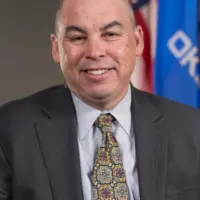
Durand Crosby
Senior Deputy Commissioner
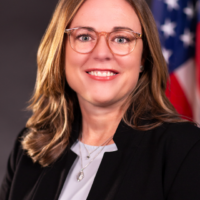
Kim Corcoran
Deputy Commissioner of Safety and Quality

Barrett Brown
Chief of Staff
Contact Information
1120 East Main street
Norman, OK 73071
